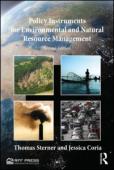The transition to a low-carbon, resource-efficient Europe is a key objective of the EU as set out in the Europe 2020 Strategy, related Roadmaps and other strategic documents. Some EU Member States have already started to take steps towards this transition with the adoption of supporting political decisions and implementation of related instruments. These efforts are welcome and should be further encouraged. However, there are also contradictory decisions being taken or delays that hinder or slow down progress. Overall, despite some positive steps in a number of policy areas, further efforts are needed to create stronger momentum towards a low-carbon, resource-efficient Europe. Consideration of resource efficiency related issues (including resource productivity, municipal waste management, environmental taxation, reform of environmentally harmful subsidies, water and air quality) within the European Semester process should also be strengthened.
The report “Resource Productivity in the G8 and the OECD” (also available in French), responding to a request by G8 Environment Ministers at their meeting in Kobe in 2008, presents an evaluation of progress on resource productivity. It highlights key trends and main policy developments related to resource productivity in OECD countries, with a particular focus on efforts to implement sustainable materials management; and identifies the main policy challenges and opportunities and discusses the steps that need to be taken to achieve further progress.
The report, a result of the collaboration between Sustainlabour and the Green Jobs Programme of the ILO, compiles and analyses data on the creation of green jobs in Spain. It includes both current employment data and studies of employment trends.

